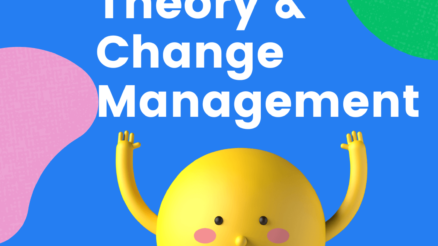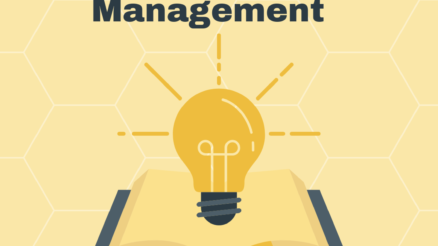Are you looking for ways to conduct a change management workshop to effectively prepare your team to manage change and ensure its success?
In this article, we will discuss various change management workshop activities that can help you and your team navigate change with greater ease and confidence.
These activities will make your workshop more interactive and engaging and provide practical tools and strategies to support successful change implementation.
We’ll also provide you with an example of a change management workshop agenda, which may be helpful if you plan to undertake a similar workshop.
Let’s get started!
Topics for Change Management Workshop
There are several activities that you can plan for your change management workshop. Here are a few examples:
1. SWOT Analysis
Conduct a SWOT analysis to help participants understand their organization’s current state and identify improvement areas. SWOT analysis for change management will help them identify the strengths, weaknesses, opportunities, and threats relevant to their organization.
2. Change Readiness Assessment
This assessment helps participants understand whether an organization and its team are ready to take on the challenge of change. Change readiness assessment will help them to identify specific capacities and capabilities to initiate and sustain change.
3. Communication Planning
Develop a communication plan that outlines the key messages, target audiences, and communication channels for the change. Communication plan for change management will help participants to develop a clear and effective roadmap to talk and share information about change.
4. Resistance Management
Discuss the different types of resistance that may arise during the change process and how to manage them effectively. This activity will help participants to develop strategies for addressing resistance and ensuring the success of the change.
5. Action Planning
Develop an action plan that outlines the specific steps that need to be taken to implement the change. This activity will help participants develop a clear roadmap for implementing the change and ensure everyone is on the same page.
6. Evaluation and Feedback
End your workshop by asking participants to provide feedback on the workshop and the change management plan. This activity will help you understand your workshop’s effectiveness and identify improvement areas.
These are just a few examples of activities you can plan for your change management workshop. Be creative and tailor your activities to your organization’s and participants’ needs.
Change Management Workshop Activities
To make your change management workshop more interactive and engaging, here are some specific activities that you could include:
1. Role-playing exercises
Divide participants into groups and have them act out different scenarios related to the change. This will help them to understand the different perspectives and challenges that may arise during the change process.
2. Group brainstorming sessions
Use brainstorming sessions to encourage participants to develop creative solutions to their challenges during the change process. This will help them think outside the box and develop new ideas.
3. Interactive games
Incorporate interactive games that are related to change management. For example, you could use a game like “Change Agent Bingo”, where participants have to fill in a bingo card with different change management-related terms as they are mentioned during the workshop.
4. Group discussions
Use group discussions to encourage participants to share their experiences and insights on change management. This will help them to learn from each other and develop a deeper understanding of the change process.
5. Visual aids
Use visual aids such as diagrams, charts, and videos to help explain complex concepts and make the workshop more engaging.
6. Case studies
Use case studies to illustrate change management principles in action. This will help participants see how their learning concepts can be applied in real-world situations.
7. Interactive feedback sessions
Use interactive feedback sessions to get feedback from participants on how the workshop is going and what could be improved. This will help you to adjust your approach and make the workshop more effective.
Remember, the key to an interactive and engaging workshop is to involve participants as much as possible. Use a variety of activities to keep them engaged and interested and encourage them to share their thoughts and ideas throughout the workshop.
Change Management Workshop Agenda
Here’s a sample agenda for a one-day change management workshop:
8:30 am – 9:00 am: Registration and networking
9:00 am – 9:30 am: Introductions and icebreaker activity
9:30 am – 10:30 am: Understanding the Need for Change
- Overview of the change and its drivers
- Importance of change management in successful change implementation
- Group discussion and Q&A
10:30 am – 10:45 am: Break
10:45 am – 12:00 pm: Change Impact Assessment
- Identifying stakeholders and their needs
- Analyzing the impact of change on the organization and its stakeholders
- Group activity and discussion
12:00 pm – 1:00 pm: Lunch
1:00 pm – 2:30 pm: Communication Planning
- Developing a communication plan to support change
- Identifying key messages and target audiences
- Exploring different communication channels
- Small group activity and presentation
2:30 pm – 2:45 pm: Break
2:45 pm – 4:00 pm: Resistance Management
- Understanding the different types of resistance to change
- Developing strategies to address resistance
- Case studies and group discussion
4:00 pm – 4:30 pm: Action Planning
- Developing an action plan to implement change
- Identifying roles and responsibilities
- Group activity and presentation
4:30 pm – 5:00 pm: Evaluation and Feedback
- Interactive feedback session to evaluate the workshop and gather feedback from participants
This is just a sample agenda, so feel free to adjust the timing and activities to meet your organization’s and participants’ specific needs. Also, ensure breaks and time for networking throughout the day to keep participants engaged and energized.
Roles and Responsibilities in Conducting Change Management Workshop Activities
In a change management workshop, different roles and responsibilities are required to ensure the workshop’s success. Here are some possible roles and responsibilities:
- Workshop Facilitator: The facilitator is responsible for leading the workshop, setting the tone, and guiding participants through the activities. The facilitator should be knowledgeable in change management and able to create a safe and supportive environment for participants to share their thoughts and concerns.
- Activity Leaders: Depending on the activities included in the workshop agenda, different activity leaders may be required. These individuals should be familiar with the activity and able to guide participants through it effectively.
- Change Agents: Change agents are responsible for driving the change initiative and should be involved in the workshop to ensure that the activities are aligned with the overall change goals.
- Participants: Participants play a crucial role in the success of the workshop. They should actively engage in the activities, share their experiences, and provide feedback to improve the workshop’s effectiveness.
- Evaluation and Feedback Coordinator: This person collects participant feedback and evaluates the workshop’s effectiveness. This feedback can be used to improve future workshops and change initiatives.
It is important to assign clear roles and responsibilities before the workshop to ensure everyone understands their role and can work together effectively to achieve the workshop’s goals. Clear communication, collaboration, and teamwork are key to the success of any change management workshop.
Why is a well-designed change management workshop important?
A well-designed change management workshop is important for several reasons.
First, it can help ensure the success of any organizational change initiative. A workshop can help your team navigate change with greater ease and confidence by providing participants with practical tools and strategies to support change implementation. This can help minimize resistance and increase buy-in, which are critical factors in the success of any change initiative.
Second, a well-designed change management workshop can promote collaboration and communication among team members. By involving participants in activities such as role-playing exercises, group brainstorming sessions, and case studies, a workshop can foster a sense of shared ownership and responsibility for the change initiative. This can help build a more cohesive and collaborative team, which can benefit the change initiative and the organization as a whole.
Third, a change management workshop can provide a safe and supportive environment for participants to share their experiences and concerns about the change. This can help managers and change agents better understand the perspectives of different stakeholders and develop more effective strategies to address their needs and concerns.
Final Words
Change is inevitable in any organization, and effective change management is critical to ensure its success. A well-designed change management workshop can help you and your team navigate change more easily and confidently. By incorporating various interactive and engaging activities, such as role-playing exercises, group brainstorming sessions, and case studies, you can develop practical tools and strategies to support successful change implementation.



